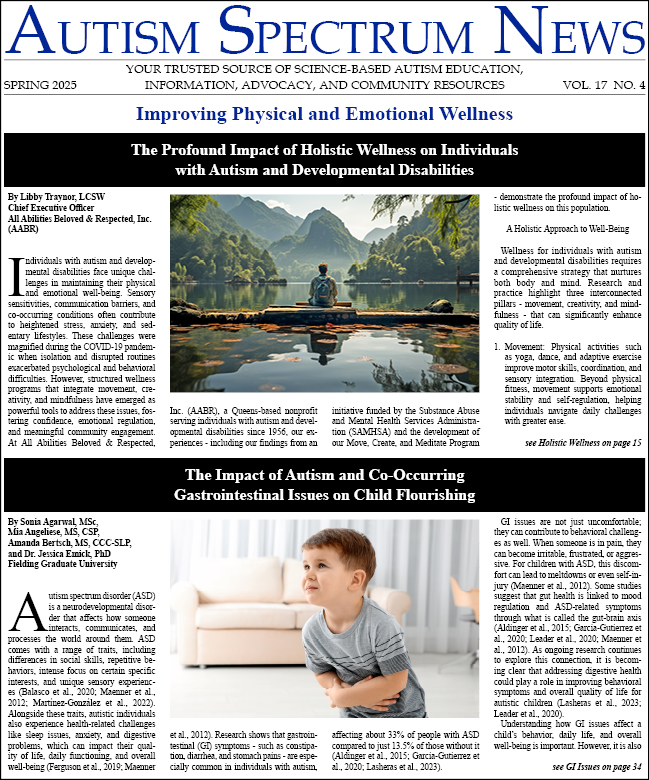-
Partnering with the Community to Provide Information and Resources Related to OPWDD’s New I/DD ID Cards
By now, some of you may have heard about OPWDD’s (Office for People with Developmental Disabilities) new I/DD ID cards for individuals with intellectual developmental disabilities in New York State. These standardized cards are available upon request and can be a very useful tool in bridging the...
-
Creating Community for Adults with Developmental and Intellectual Disabilities
Navigating the road to adulthood is rocky for many people. But for young adults on the autism spectrum, the challenge is particularly tough, particularly for creating a community for adults with developmental and intellectual disabilities. Social isolation can pose a significant challenge for these...
-
The Importance of Community-Based Instruction for Individuals with Autism Across the Lifespan
When looking toward the future, most parents hope their children will be happy, healthy, and enjoy a satisfying quality of life. For families with a child with autism, this desire is no different. The Autism Society of America identified nine key indicators to consider for assessing and improving...
-
Home-Based Services as a Means to Increasing Community Engagement in Individuals with Autism
Community engagement is a broad term that is informed by an ecological perspective that one’s behavior is impacted by larger social, cultural and physical environments. Community engagement has been defined as “the process of working collaboratively with and through groups of people affiliated...
-
Strengthening Community Engagement with Vocational Training and Employment for Young Adults with Autism
We want our students with autism to be able to answer the question, “What are you going to be when you grow up?” Vocational training and employment provides a sense of belonging, improved quality of life, community inclusion, and a paycheck. Historically, however, employment rates for adults...
-
Taking a Multi-Cultural Approach to Promoting Autism Awareness
For decades caregivers, practitioners, educators, advocates, and researchers, to name a few, have exhausted resources in promoting autism awareness in their communities (locally, nationally, and globally). According to the Center for Disease Control (CDC) (2019), the number of individuals diagnosed...
-
Promoting Community Engagement and Social Connections Through Employment and Volunteering
Most parents, at some point, grapple with worry over how their child will fair. Will they be happy? Will they find meaningful connections? Will they find their passion? This is particularly true for parents of children with autism. Added to typical concerns, like “is my adult child eating their...
-
The Importance of Community Social Participation for Adults with ASD
Over the past ten years, researchers have been investigating the quality of life and overall functioning of adults with ASD (Orsmond, G.I., et al., 2013; Billstedt, E., et al., 2011; Robertson, S.M., 2010; Renty, J.O. & Roeyers, H., 2006). A consistent finding across these studies is the...
-
Aspies in the City: Building a More Inclusive Community, One Person at a Time
Since I was very young, I had a fascination with people who had Autism. Although in some ways they seemed different than me, in others there were a lot of similarities. Later as an adult, it was suggested that I might have a lot in common with people who have Asperger’s Syndrome. So, one...
-
Taking Learning Out of the Clinic and Into the Community
When working with youth and young adults on the autism spectrum, professionals and parents are often faced with the daunting task of teaching life skills. These skills can include grocery shopping, stranger awareness, everyday cleaning, and self-care. Youth and young adults often need to be taught...





